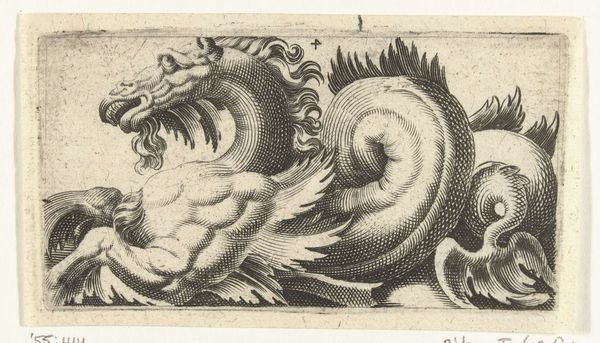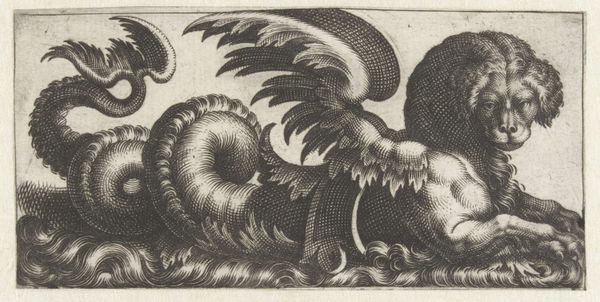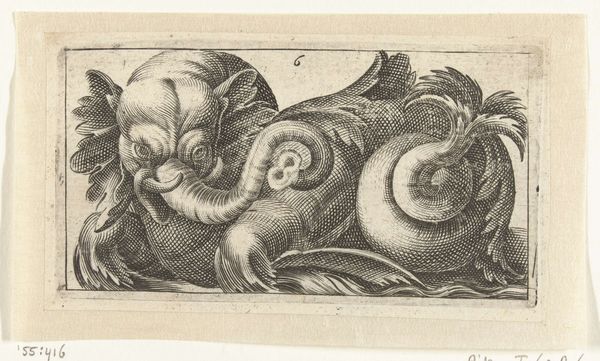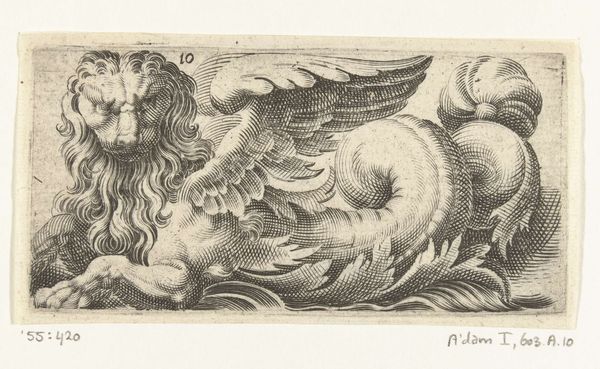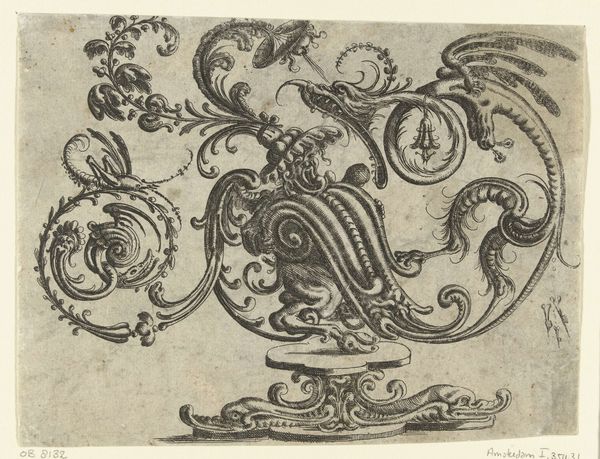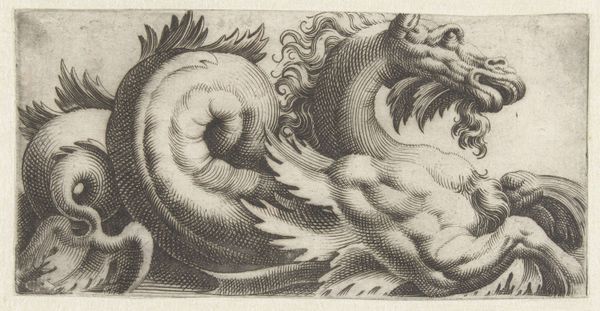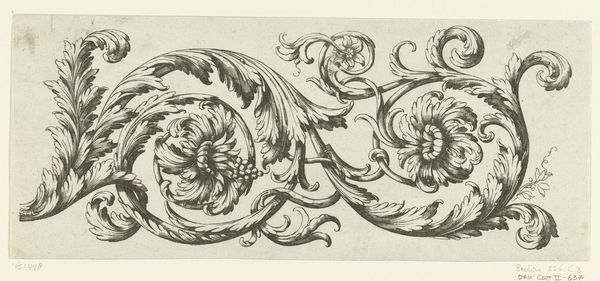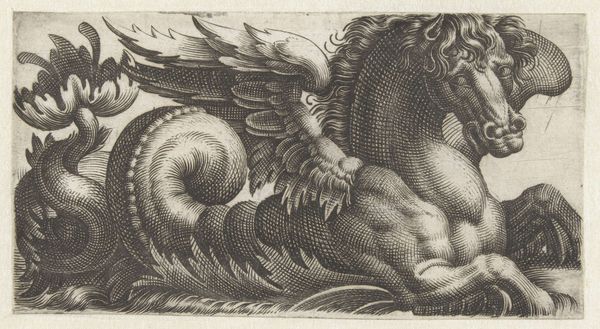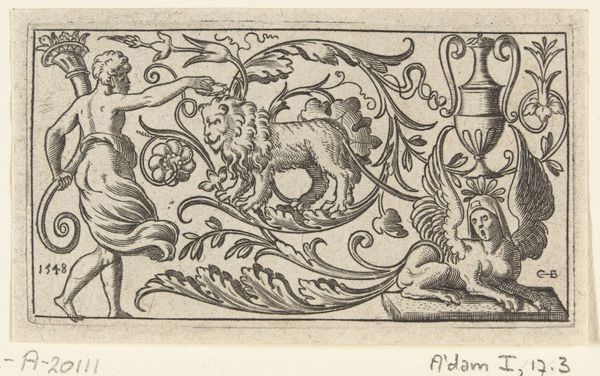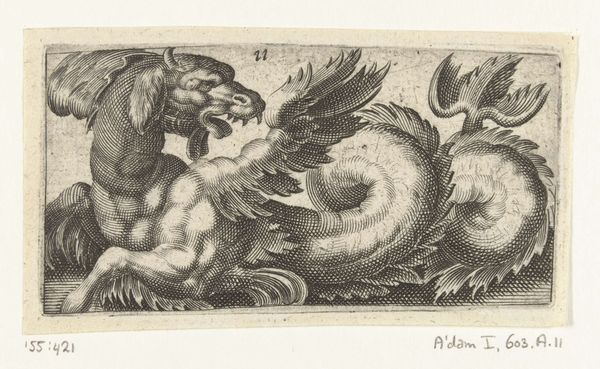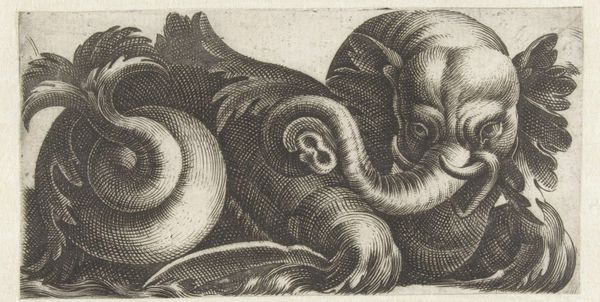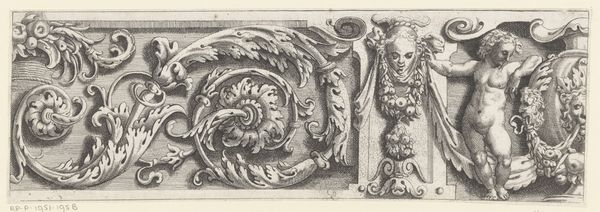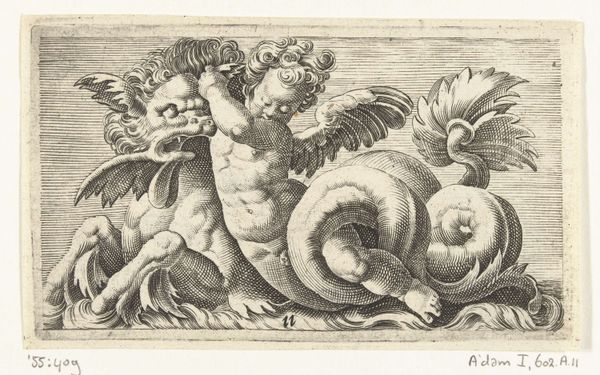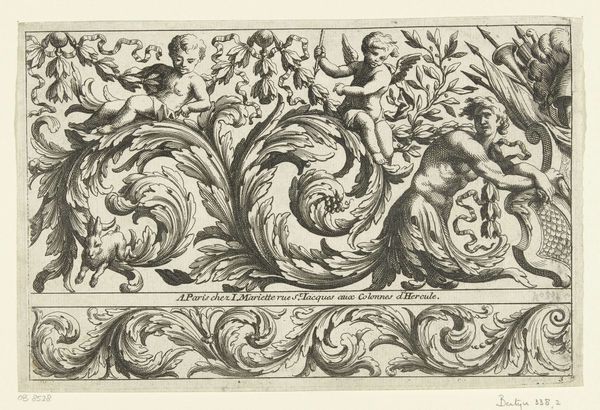
print, engraving
#
pen drawing
# print
#
old engraving style
#
mannerism
#
figuration
#
11_renaissance
#
engraving
Dimensions: height 54 mm, width 101 mm
Copyright: Rijks Museum: Open Domain
This fantastic creature was made by Adam Fuchs, sometime before 1606, using the intaglio printmaking technique of engraving. This means that the image was incised into a metal plate, probably copper, with a tool called a burin. Look closely, and you’ll see that the artist built up the image line by line, using hatching to create tonal variation and suggest three-dimensionality. Consider the artist’s skill here, and the number of hours that it took to complete this small, but detailed design. This reminds us that even prints – often considered multiples, and therefore less precious than one-off artworks – are deeply rooted in skilled hand labor. It would have been printed in multiples, allowing this strange image to circulate and to be acquired at relatively low cost. This engraving is a reminder that the impact of an image lies not only in its content, but in the means of its production and circulation.
Comments
No comments
Be the first to comment and join the conversation on the ultimate creative platform.
